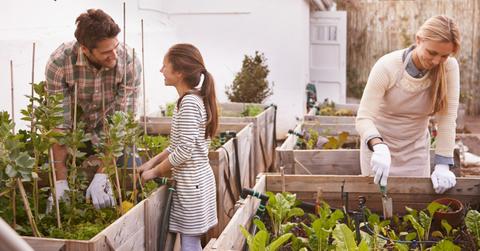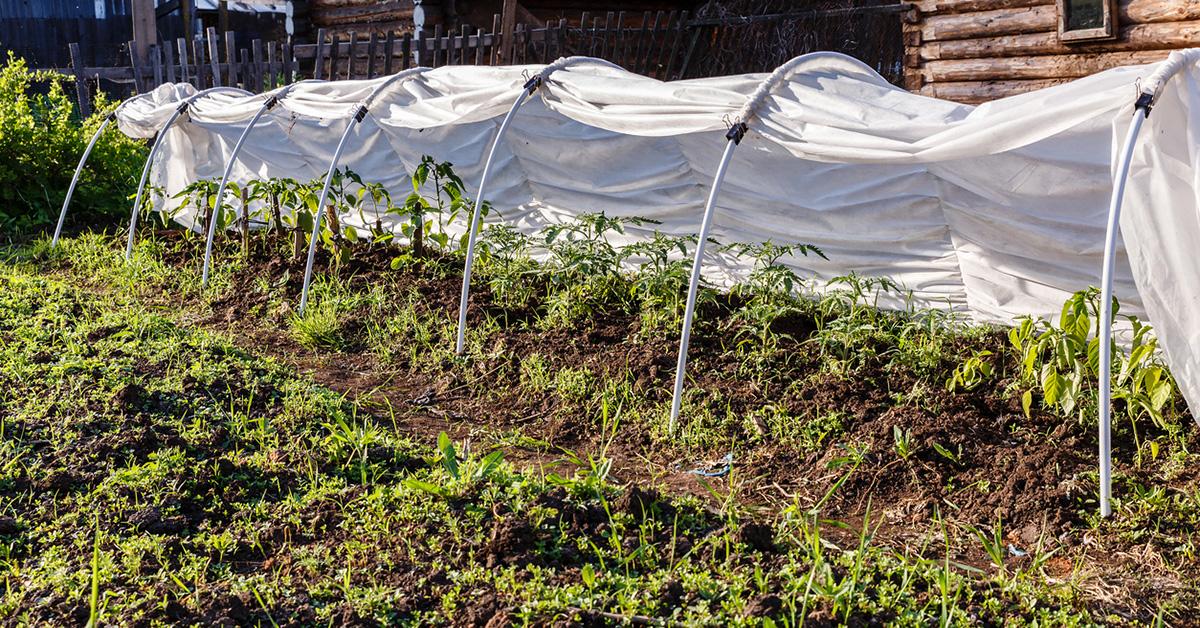How to Protect Your Vegetable Garden From Animals
Gardening is a fun and rewarding hobby — not to mention, sustainable and delicious. But gardening can also be fickle, especially if the neighborhood squirrels, deer, and birds have realized how tasty your hobby is.
Updated Feb. 17 2020, 3:52 p.m. ET

There is nothing more exciting than reaping the seeds you have sown. Gardening is a fun and rewarding hobby — not to mention, sustainable and delicious. But gardening can also be fickle, especially if the neighborhood squirrels, deer, and birds have realized how tasty your hobby is.
What can you do to protect your vegetable garden from animals? Over the years, gardeners have used many different methods. Different things work for different animals and plants, of course, so determining the protection methods that work for your vegetable garden might mean a bit of trial and error.
Ready to dive in? Keep reading for ways to protect your vegetable garden from animals!
Fences
Fences are generally your best bet when it comes to protecting your vegetable garden from pests like rabbits and deer. To prevent burrowing animals, you’ll want to plant your fence into the ground as far down as one inch. If you have a rabbit problem, fences should be at least three feet high.
Deer problem? That is a bit trickier. To circumvent deer, you’ll need a fence that is at least 8 inches tall — after all, deer can jump very high. Fences made from chicken-wire will also work to deter groundhogs.
Deer will eat just about anything if food is scarce, but you should take particular care to fence off your basil, bok choy, brussels sprouts, chard, cilantro, kale, melon, okra, summer squash, radish, potatoes, and winter squash.
Plant Barrier Plants
Plants can act as natural deterrents to certain species. Just as certain plants can keep mosquitoes away, rosemary, garlic, and oregano can deter deer from entering your garden and chowing down on your veggies.
Cayenne Pepper Tea
Cayenne pepper tea can keep away unwanted critters like rabbit, deer, squirrels, and maybe even bears. Hot peppers contain a component called capsaicin, which essentially burns an animal when they taste it.
To make cayenne pepper tea, cut four cayenne peppers lengthwise and get rid of the green stems. Chop, put in a container, then add 1 ½ cups of hot water and ½ cup of white vinegar. Seal tightly and let it sit for four days. When the mixture is done settling, strain it and put the cayenne mixture in a funnel. Add 1 teaspoon of dishwashing liquid and 3 tablespoons of vegetable oil. Shake the bottle, then spray on plants, leaves, or bird feeders.
Predator Urine
You can buy predator urine online or at your local gardening shop. Usually, predator urine is more specifically, wolf urine. It keeps vegetable-predators — like deer — at bay because of its foul smell. Deer will smell the wolf’s urine, think a predator is nearby, and steer clear of your veggie garden.
Make a Beer Trap
When thinking of animals that prey on your veggies, your first thought might not be a slug. However, slugs eat the leaves of vegetables, which can cause your veggies to die. To keep slugs away, make a beer trap with beer and a shallow container. You can upcycle a yogurt cup to make the trap; just fill it with beer, leaving an inch between the rim of the cup. Bury the cup so the top is level with the soil. Slugs and snails will drown in the container.

Plant Covers
Like fencing, plant coverings can work wonders. Of course, they won’t do much for burrowing animals, but covering your vegetables in netting, garden fabric, or even chicken wire can protect your beloved veggies from groundhogs, birds, and squirrels.
Other Animals
It might seem counterintuitive — actually, a lot of these garden-protecting methods seem counterintuitive — but other animals might be able to keep animals away from your garden.
Outdoor dogs are great for keeping away deer and some species of dogs — like huskies, for example — might even deign to catch mice, voles, chipmunks, or birds. Outdoor cats can deter mice, voles, and even birds. And don’t worry —it doesn’t have to be a massacre. Sometimes the very presence of a dog or cat is enough to keep other animals (with keen senses of smell) away.
Other Plants
Again, counterintuitive, but some animals won’t go near your vegetables if your vegetables are surrounded by bad-smelling (to them) plants and flowers. Deer generally don’t like Abelia, barberry bushes, bluebeard shrubs, Forsynthia, winterberry holly, summer lilac, and coral bells.